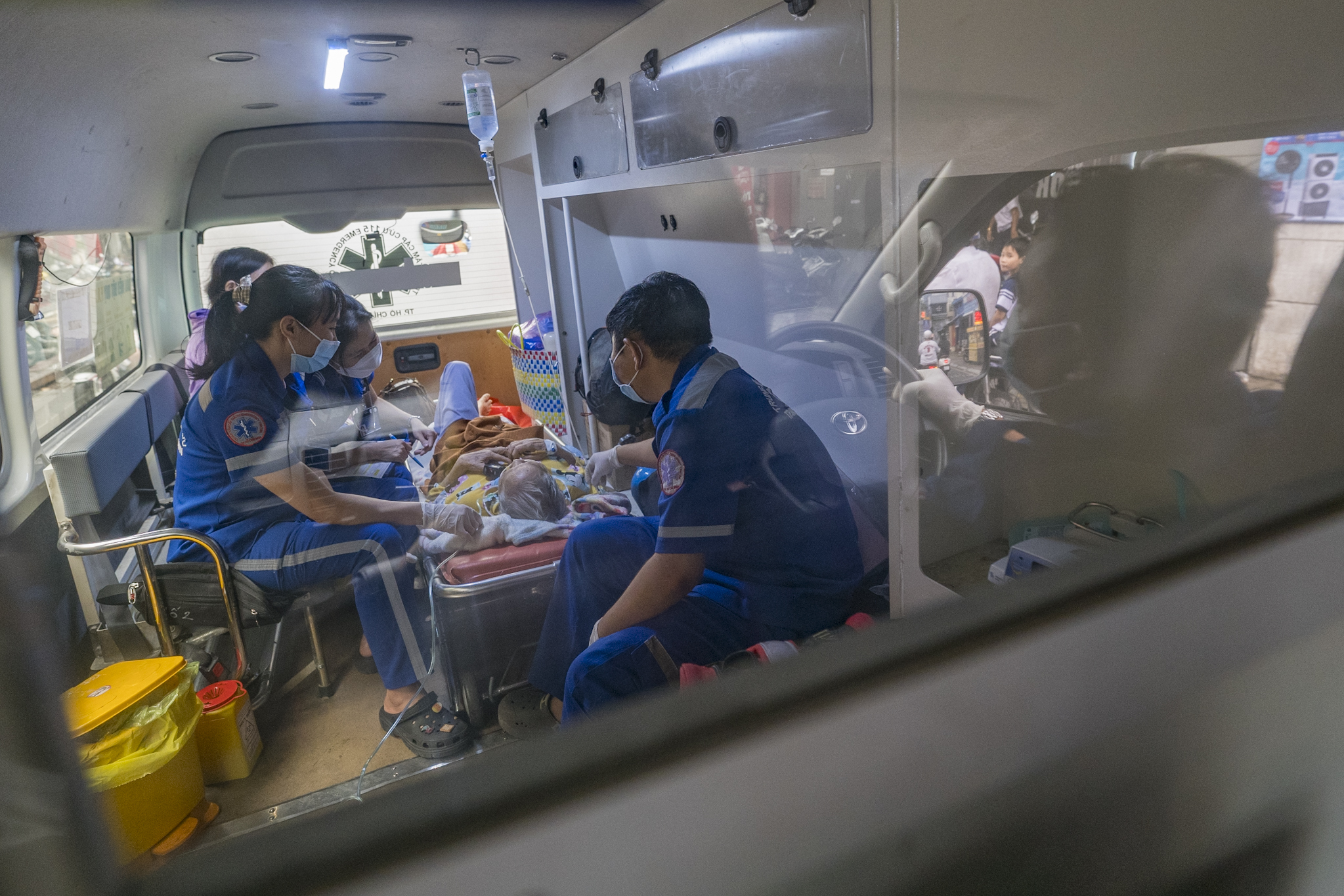The two stations became operational on 15/8. Dr. Nguyen Duy Long, director of Ho Chi Minh City’s 115 Emergency Center, stated these are the first two satellite emergency stations in the former Binh Duong province, bringing the city’s total satellite station network to 47. Previously, Binh Duong lacked a dedicated 115 Emergency Center. Local healthcare facilities managed pre-hospital emergency services independently, resulting in inconsistent procedures and management. People needing emergency assistance often had to contact the nearest hospital or medical center directly, leading to variations in response time and quality.
Since Binh Duong's merger with Ho Chi Minh City on 1/7, all 115 calls from the area have been routed to Ho Chi Minh City’s 115 Emergency Center for centralized handling, consultation, and coordination. By 31/7, the center had received 9,000 calls from the former Binh Duong province, with 452 cases requiring emergency assistance. In all of 2024, there were only 1,780 such cases.
According to Dr. Long, these figures demonstrate the effectiveness of routing 115 calls to a single point and expanding the satellite station network. This has reduced processing time and enabled faster access to those in need during emergencies. Since the merger and the centralized coordination of 115 services, the number of ambulance dispatches, patient contacts, and hospital transfers has increased significantly, with most indicators showing a rise of over 50%.
 |
Ho Chi Minh City’s 115 Emergency Center transports a patient to the hospital after initial treatment. Photo: Hoang Viet |
Ho Chi Minh City’s 115 Emergency Center transports a patient to the hospital after initial treatment. Photo: Hoang Viet
Huynh Minh Chin, deputy director of Ho Chi Minh City’s Department of Health, described the integration of the pre-hospital emergency system in neighboring areas as a vital step in implementing the People's Committee’s Plan 912 for developing a professional pre-hospital emergency system by 2030 and beyond. The satellite stations need to be well-prepared in terms of personnel, vehicles, medical equipment, and standardized expertise to handle all emergencies, especially those involving mass casualties.
"As the 115 satellite station network expands, Ho Chi Minh City residents will receive faster assistance, reduced waiting times, increased chances of survival, and improved emergency medical care," Mr. Chin said.
Le Phuong












